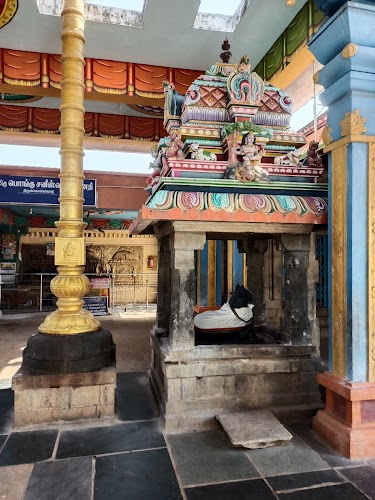
Sri Agneeswarar Temple (Thirukollikadu Shiva Temple)
Nagapattinam, India
- Attend festivals and special events.
- Enjoy the serene and spiritual atmosphere.
- Explore the temple architecture and carvings.
- Participate in temple rituals and prayers.
- Visit the sacred tank within the temple.
Known for:
Description:
Sri Agneeswarar Temple, located in Thirukollikadu near Nagapattinam, is a revered Shiva temple known for its association with Lord Agni (Fire God). The temple's architecture reflects the Dravidian style, featuring intricate carvings and sculptures. The presiding deity, Lord Agneeswarar, is believed to grant blessings and fulfill the wishes of devotees. The temple is particularly significant for those seeking relief from ailments related to heat or fire. The serene atmosphere and spiritual ambiance make it a must-visit destination for pilgrims and tourists seeking a peaceful and divine experience. The temple also boasts a sacred tank and various shrines dedicated to other deities, adding to its religious significance. Don't miss the opportunity to witness the daily rituals and festivals celebrated with great fervor.
History:
The history of Sri Agneeswarar Temple is deeply rooted in Hindu mythology. Legend has it that Lord Agni, the God of Fire, worshipped Lord Shiva at this site to absolve himself of a sin. The temple is believed to have been built by the Chola dynasty, with later contributions from the Pandya and Vijayanagara empires. Inscriptions within the temple complex provide valuable insights into its historical evolution and the patronage it received from various rulers. Over the centuries, the temple has undergone several renovations and expansions, preserving its architectural grandeur and religious importance. The temple continues to be a significant center of worship and a testament to the rich cultural heritage of the region.